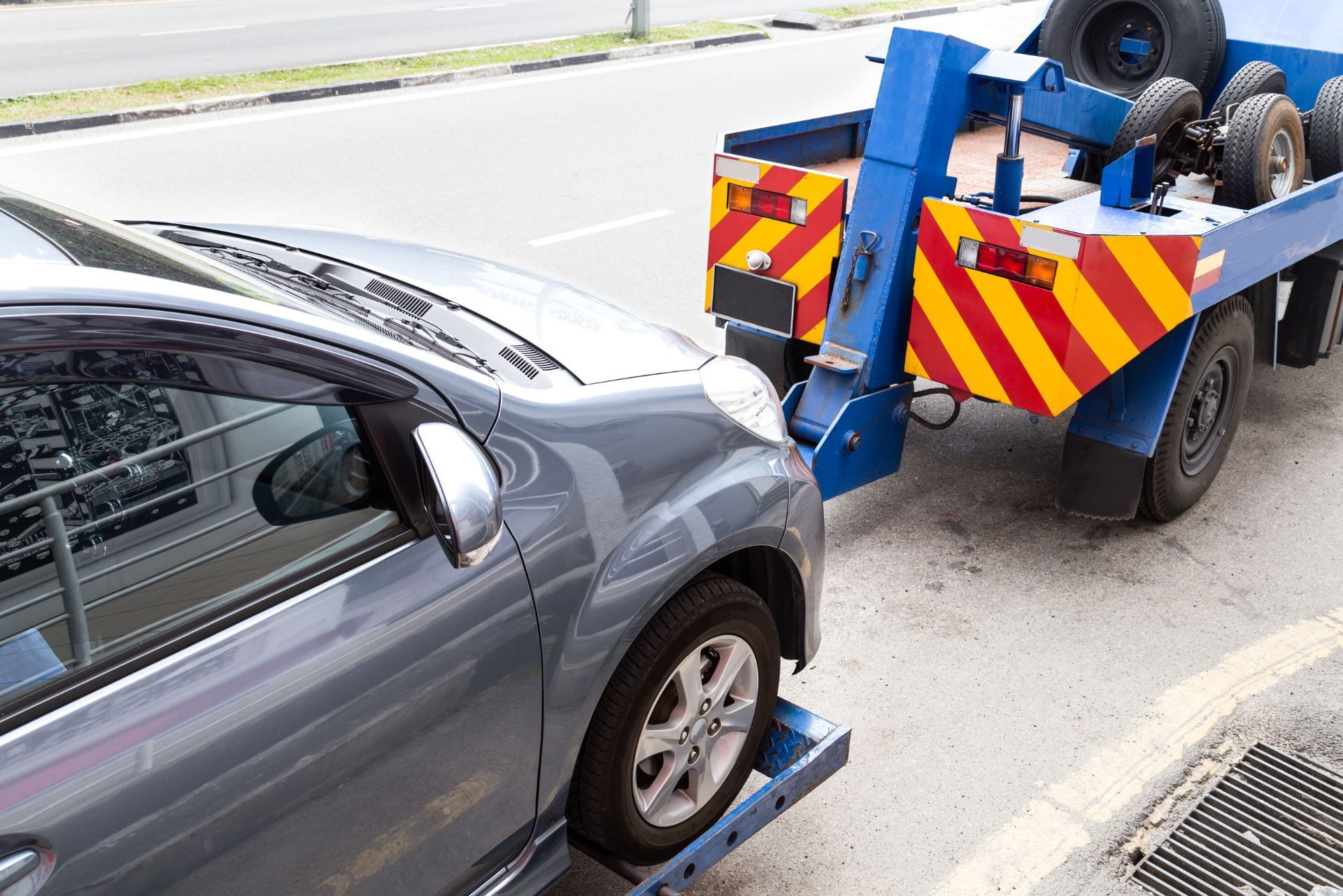
Top 3 Recommended Policies
Tow truck operators in Connecticut face a unique set of challenges when it comes to insurance. The rising costs of premiums, evolving state regulations, and operational risks all play a role in shaping the insurance landscape. For businesses in this sector, understanding these factors is essential to maintaining compliance and financial stability. This article explores the current state of tow truck insurance in Connecticut, the reasons behind premium hikes, and recent legislative changes affecting the industry.
Why Tow Truck Insurance Costs Are Rising in Connecticut
Insurance premiums for tow truck companies in Connecticut have surged dramatically in recent years. One notable example involved a local tow truck company whose insurance premium jumped from $212,000 to $480,000, with an upfront payment demand of $100,000. This steep increase reflects broader trends impacting the industry.
Several factors contribute to these rising costs. Increased operational risks, including accidents and liability claims, drive insurers to raise rates. Additionally, the legal environment in Connecticut has become more challenging. According to Jerry Theodorou of the R Street Institute, the trucking industry experienced a 10% failure rate in 2023, largely due to higher operational expenses and lawsuits that push insurance premiums upward.
Furthermore, car insurance rates in Connecticut rose by 10.7% in 2024, more than double the national average increase of 4.8%. This trend affects tow truck insurance as well, since many insurers bundle or align commercial vehicle policies with broader auto insurance market conditions. For tow truck operators, these premium hikes can strain budgets and threaten business viability.
In addition to these economic pressures, the increasing frequency of severe weather events has also played a role in escalating insurance costs. With Connecticut experiencing more frequent storms, heavy snowfall, and flooding, tow truck companies are often called upon to respond to emergencies, which raises their risk exposure. Insurers are now factoring in these environmental risks into their pricing models, leading to higher premiums for tow truck operators who must be prepared to respond to a variety of challenging conditions.
The growing trend of distracted driving has further complicated the landscape for tow truck companies. As more drivers engage with their phones and other devices while on the road, the likelihood of accidents increases, resulting in more claims and higher costs for insurers. Tow truck operators find themselves in precarious situations, often working on busy highways where the risk of being involved in an accident is significantly heightened. This environment not only impacts insurance rates but also raises concerns about the safety of tow truck operators themselves.
For more on the surge in insurance premiums, see the report on Connecticut tow truck company insurance premium increase.

Understanding Connecticut’s Tow Truck Insurance Requirements
Connecticut mandates specific insurance coverage for tow truck businesses to protect both operators and consumers. These requirements typically include liability insurance, which covers damages caused during towing operations, and physical damage coverage for the tow trucks themselves.
Liability insurance is crucial because tow trucks often operate in high-risk environments such as busy streets, parking lots, and accident scenes. Coverage must account for property damage, bodily injury, and legal defense costs. Without adequate liability protection, tow truck companies expose themselves to potentially devastating financial losses.
Physical damage coverage protects the tow truck from damages resulting from collisions, vandalism, or theft. Given the heavy use and sometimes hazardous conditions tow trucks face, this coverage helps maintain fleet integrity and business continuity.
While these coverages form the insurance backbone, many companies also consider additional policies such as garage liability, workers’ compensation, and commercial auto insurance tailored to towing operations. Navigating these options requires expertise and often consultation with insurance professionals familiar with Connecticut’s towing industry.
Furthermore, the state of Connecticut emphasizes the importance of ensuring that tow truck operators are adequately trained and certified, which can also impact insurance rates. Operators who have completed specialized training programs may qualify for lower premiums, as they are deemed less risky. This not only benefits the operators financially but also enhances safety on the roads, as trained professionals are more adept at handling challenging towing situations.
Additionally, the insurance landscape for tow truck operators is evolving with the introduction of new technologies. Many tow truck companies are now incorporating telematics and GPS tracking systems into their operations. These technologies not only improve efficiency and response times but can also lead to reduced insurance premiums. Insurers often reward businesses that leverage technology to mitigate risks, thus creating an incentive for tow truck operators to invest in modern solutions that enhance safety and operational effectiveness.
How State Laws Impact Tow Truck Insurance and Operations
Connecticut’s towing laws directly influence insurance risks and costs. One significant issue is the state’s short holding period for towed vehicles. Connecticut allows tow truck companies to sell vehicles valued under $1,500 after just 15 days of impoundment, one of the shortest periods nationally. This policy can increase disputes and claims, adding to insurance liabilities. The rapid turnover of vehicles can lead to a lack of communication with vehicle owners, resulting in misunderstandings and potential legal battles over ownership and compensation.
Moreover, the Connecticut Department of Motor Vehicles (DMV) recently acknowledged that it has never enforced a century-old law requiring towing companies to turn over unclaimed profits from vehicle sales. This lack of enforcement creates a regulatory gap that complicates consumer protections and industry accountability. The absence of oversight not only affects consumers but also fosters an environment where unethical practices may thrive, as some towing companies might exploit the loophole for financial gain without fear of repercussions.
In response to these challenges, lawmakers are actively working to overhaul towing laws. Proposed reforms aim to lengthen the time before a towed vehicle can be sold and enhance consumer safeguards. These changes could reduce legal risks for tow truck operators and potentially stabilize insurance premiums over time. Additionally, lawmakers are considering measures to improve transparency in the towing process, such as requiring towing companies to provide clear documentation of fees and services rendered. This could empower consumers by ensuring they are fully informed of their rights and obligations when their vehicles are towed.
Learn more about these legislative efforts in the article on Connecticut lawmakers seeking towing law reforms.
Consumer Protection Measures Affecting Tow Truck Insurance
Consumer protection is a growing focus in Connecticut’s towing industry. A recent law prohibits tow truck operators from requiring motorists to sign storage agreements before completing the towing job. This measure aims to prevent coercion and unfair contract practices, ensuring that consumers are not pressured into agreeing to terms they may not fully understand or accept.
Such regulations impact insurance because they reduce the likelihood of disputes and lawsuits related to contract terms. When tow truck companies operate transparently and fairly, insurers view them as lower risk, which can influence premium pricing. This shift not only benefits the towing companies by potentially lowering their insurance costs but also enhances consumer trust in the industry, as motorists feel more secure knowing that they are protected from unfair practices.
Additionally, industry leaders like Timothy Vibert, president of the Towing & Recovery Professionals of Connecticut, emphasize the importance of lawful towing practices. Vibert notes that his company removes vehicles only when they are illegally parked according to laws or condominium rules, underscoring a commitment to responsible operations that insurers favor. This adherence to ethical standards not only safeguards the interests of consumers but also helps to foster a positive reputation for the towing industry as a whole, which can lead to increased business opportunities and partnerships.
Furthermore, the implementation of these consumer protection measures encourages tow truck operators to engage in ongoing training and education regarding legal compliance and customer service. By prioritizing ethical practices and consumer awareness, towing companies can create a more professional environment that benefits both the operators and the public. This proactive approach can also lead to better relationships with local law enforcement and municipalities, as towing companies demonstrate their commitment to community standards and safety.
For insights into towing industry challenges and consumer protections, visit
ProPublica’s investigation on Connecticut towing practices.

Practical Tips for Tow Truck Operators Navigating Insurance Challenges
Given the rising insurance costs and evolving regulations, tow truck operators in Connecticut should adopt strategic approaches to manage their insurance needs effectively.
- Shop Around and Compare: Insurance premiums can vary widely between providers. Regularly comparing quotes and coverage options helps identify the best value.
- Maintain a Clean Safety Record: Reducing accidents and claims by training drivers and enforcing safety protocols can lower insurance risk profiles.
- Stay Informed on Legal Changes: Keeping up with legislative reforms and compliance requirements minimizes legal exposure and potential penalties.
- Work with Specialized Brokers: Insurance brokers who understand the towing industry and Connecticut’s specific market can tailor policies to fit unique risks.
- Consider Risk Management Programs: Implementing risk assessments and loss prevention strategies can demonstrate responsibility to insurers and help control premiums.
These steps not only protect the business but also contribute to a more stable insurance environment in a challenging market. Additionally, tow truck operators should consider investing in technology that enhances operational efficiency and safety. For instance, GPS tracking systems can help monitor vehicle locations in real-time, which not only improves response times but also provides data that can be beneficial during insurance assessments. By demonstrating a commitment to leveraging technology for safety and efficiency, operators may find themselves in a stronger negotiating position with insurers.
Moreover, networking with other towing professionals can provide valuable insights into best practices and emerging trends in the industry. Joining local towing associations or attending industry conferences can facilitate knowledge sharing about effective insurance strategies and risk management techniques. Engaging with peers can also foster relationships that may lead to collaborative opportunities, such as bulk insurance purchasing, which can further reduce costs and enhance coverage options.
What the Future Holds for Connecticut Tow Truck Insurance
The towing industry in Connecticut stands at a crossroads. With insurance premiums climbing and regulatory scrutiny increasing, operators must adapt to survive and thrive. Legislative efforts to reform towing laws promise to offer greater consumer protections and possibly ease some insurance pressures.
However, the broader context of rising auto insurance rates and legal challenges means that tow truck companies will likely continue facing high operational costs. Industry leaders and lawmakers must work together to balance fair consumer treatment with sustainable business practices.
Tow truck operators who proactively manage risks, maintain compliance, and engage with insurance professionals will be best positioned to navigate this evolving landscape.
In addition to the financial pressures, tow truck operators are also facing challenges related to workforce shortages. Many companies struggle to find qualified drivers, which can lead to increased overtime costs and a reliance on temporary staffing solutions. This shortage is exacerbated by the demanding nature of the job, which often requires long hours and the ability to work in adverse weather conditions. As the industry evolves, attracting new talent will be crucial for maintaining service levels and ensuring safety on the roads.
Moreover, advancements in technology are reshaping the towing landscape. From GPS tracking systems that optimize route efficiency to mobile apps that streamline customer interactions, embracing these innovations can help tow truck companies enhance their operational efficiency and improve customer satisfaction. As the industry adapts to these technological changes, insurance providers may also need to reconsider their policies to account for the new risks and benefits associated with these tools. For a detailed look at the insurance challenges facing the trucking industry, including tow trucks, see the commentary by Jerry Theodorou at the
R Street Institute.
Frequently Asked Questions About Connecticut Tow Truck Insurance
Q: What types of insurance are required for tow truck operators in Connecticut?
A: Operators typically need liability insurance, physical damage coverage, and commercial auto insurance tailored to towing operations. Additionally, many operators opt for on-hook coverage, which protects vehicles while they are being towed, and garage keepers liability, which covers damage to vehicles stored at their facilities. These additional coverages can provide peace of mind and financial protection against unforeseen incidents.
Q: Why have insurance premiums for tow trucks increased so much recently?
A: Premiums have risen due to increased accident risks, lawsuits, higher operational costs, and overall auto insurance rate hikes in Connecticut. The rise in distracted driving incidents and the growing number of vehicles on the road have contributed to a higher frequency of accidents involving tow trucks. Moreover, the legal landscape has become more complex, with more claims being filed against towing companies, leading insurers to adjust their rates accordingly to mitigate risk.
Q: How does Connecticut’s towing law affect insurance?
A: Short vehicle holding periods and weak enforcement of profit-sharing laws increase legal risks, which can raise insurance costs. These factors can lead to disputes over towing fees and storage charges, resulting in potential lawsuits that insurance companies must account for in their pricing models. Furthermore, the lack of clear regulations can create an environment where operators face unexpected liabilities, prompting insurers to charge higher premiums to cover these risks.
Q: Can tow truck operators require motorists to sign storage agreements?
A: No. A new Connecticut law prohibits requiring storage agreements before completing towing jobs to protect consumers. This legislation aims to prevent operators from taking advantage of motorists in distress, ensuring that individuals are not pressured into signing agreements without fully understanding the terms. This consumer protection measure reflects a growing awareness of the need for fairness and transparency in the towing industry.
Q: What can tow truck companies do to lower their insurance premiums?
A: Maintaining a clean safety record, shopping for competitive quotes, staying compliant with laws, and working with specialized brokers can help reduce premiums. Additionally, investing in driver training programs and implementing safety protocols can enhance the company's reputation and reduce the likelihood of accidents. Many insurers also offer discounts for companies that adopt technology such as GPS tracking and dash cameras, which can provide evidence in the event of a claim and demonstrate a commitment to safety.
Q: Are there ongoing efforts to reform towing laws in Connecticut?
A: Yes. Lawmakers are working to lengthen vehicle holding periods and strengthen consumer protections to improve industry standards. These reforms are part of a broader initiative to create a more equitable towing environment, addressing issues such as excessive fees and lack of transparency in the towing process. Advocacy groups and industry stakeholders are actively participating in discussions to ensure that any changes reflect the needs of both consumers and towing operators, aiming to strike a balance that promotes fair practices while maintaining the viability of towing businesses.
Contact Us
Phone
Locations
Connecticut Location
703 Hebron Ave., 3rd Floor, Glastonbury, CT 06033
North Carolina Location
436 East 36th St., Charlotte, NC 28205


